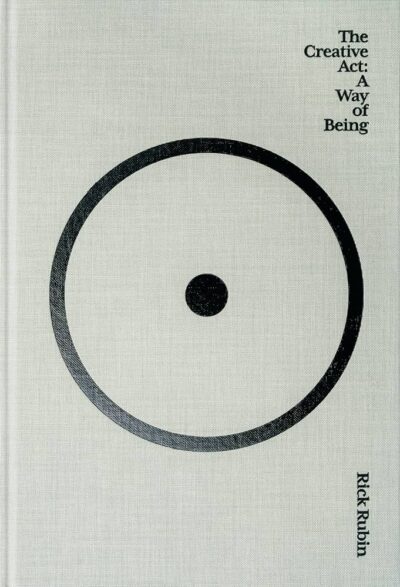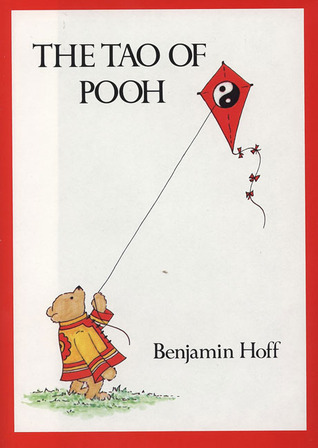182 Results with the "Philosophical" genre
Adventure Fiction (1164)
Biography (435)
Business & Finance (1)
Children's Literature (124)
Comics (6)
Culture (51)
Drama (123)
Dystopian (29)
Fable (86)
Fantasy (1132)
Fantasy (203)
Fiction (1010)
Finance (1)
Gothic Fiction (12)
Historical Fiction (615)
History (122)
Horror (56)
Lifestyle (36)
Literary (404)
Literary Fiction (207)
Memoir (113)
Mystery (422)
Non-fiction (87)
Novel (549)
Paranormal Fiction (96)
Philosophy (45)
Poetry (249)
Political Fiction (14)
Politics (42)
Practical (32)
Psychological (4)
Psychological Thriller (108)
Relationship (6)
Romance Novel (716)
Romantic Melodrama (14)
Satire (91)
Science (46)
Science Fiction (345)
Self-help (68)
Society (65)
Society (2)
Spiritual Growth (1)
story (2)
Thriller (704)
True Crime (56)
view (11)
Women's Fiction (2)
Young Adult (233)
-
Chapter
The Gatekeeper
 Within the creative process, every idea must pass through a crucial checkpoint—the gatekeeper, often recognized as the editor. This individual wields significant influence, shaping how a final piece of work is presented to the world, functioning as both a curator and a sculptor of raw ideas. The editor’s primary role is to enhance the most vital aspects of a creation while stripping away unnecessary elements, refining it into its most impactful and polished form. Editing is not just a mechanical…
Within the creative process, every idea must pass through a crucial checkpoint—the gatekeeper, often recognized as the editor. This individual wields significant influence, shaping how a final piece of work is presented to the world, functioning as both a curator and a sculptor of raw ideas. The editor’s primary role is to enhance the most vital aspects of a creation while stripping away unnecessary elements, refining it into its most impactful and polished form. Editing is not just a mechanical…-
341.4 K • Ongoing
-
-
Chapter
Intention
 Intention shapes the foundation of every creative endeavor, infusing depth, meaning, and authenticity into the final work. More than just an idea or goal, intention represents a deep alignment between thought, action, and purpose, guiding artists, writers, and creators in their process. This chapter explores how the unseen force of intention influences not only the quality of work but also the experience of creating, transforming routine acts into profound expressions of dedication and mindfulness. In a…
Intention shapes the foundation of every creative endeavor, infusing depth, meaning, and authenticity into the final work. More than just an idea or goal, intention represents a deep alignment between thought, action, and purpose, guiding artists, writers, and creators in their process. This chapter explores how the unseen force of intention influences not only the quality of work but also the experience of creating, transforming routine acts into profound expressions of dedication and mindfulness. In a…-
341.4 K • Ongoing
-
-
Chapter
Great Expectations
 In Great Expectations, the chapter delves into the psychological complexities that accompany the beginning of any ambitious creative endeavor. Whether an individual is an experienced professional or an aspiring artist, the initial stages of a project often bring a mix of excitement and unease. This emotional tension arises from the unpredictable nature of the creative process—where one’s vision is clear but the execution remains uncertain, leaving room for both great success and possible…
In Great Expectations, the chapter delves into the psychological complexities that accompany the beginning of any ambitious creative endeavor. Whether an individual is an experienced professional or an aspiring artist, the initial stages of a project often bring a mix of excitement and unease. This emotional tension arises from the unpredictable nature of the creative process—where one’s vision is clear but the execution remains uncertain, leaving room for both great success and possible…-
341.4 K • Ongoing
-
-
Chapter
Chapter 2: The How of Pooh?
 Chapter 2: The How of Pooh? In this chapter, Hoff introduces Pooh to the concept of Taoism, a philosophy many people are not familiar with. Hoff believes the best way to start understanding Taoism is by exploring its roots in China. To help explain this, Hoff and Pooh imagine themselves walking through a Chinese city, where they encounter a calligraphy shop. The shopkeeper presents them with a painted scroll called "The Vinegar Tasters." This scroll features three figures—Confucius, Buddha, and…
Chapter 2: The How of Pooh? In this chapter, Hoff introduces Pooh to the concept of Taoism, a philosophy many people are not familiar with. Hoff believes the best way to start understanding Taoism is by exploring its roots in China. To help explain this, Hoff and Pooh imagine themselves walking through a Chinese city, where they encounter a calligraphy shop. The shopkeeper presents them with a painted scroll called "The Vinegar Tasters." This scroll features three figures—Confucius, Buddha, and…-
68.0 K • Ongoing
-
-
Chapter
Crafting
 The crafting phase in the artistic process represents a vital shift, moving away from the unbounded freedom of initial exploration toward a more methodical and structured development. It’s the stage where the initial bursts of inspiration start to take shape into something more concrete. This transformation requires the artist to shift from open-ended curiosity into focused action, where they refine ideas and develop them into a completed project. The joy and spontaneity of the early creative process…
The crafting phase in the artistic process represents a vital shift, moving away from the unbounded freedom of initial exploration toward a more methodical and structured development. It’s the stage where the initial bursts of inspiration start to take shape into something more concrete. This transformation requires the artist to shift from open-ended curiosity into focused action, where they refine ideas and develop them into a completed project. The joy and spontaneity of the early creative process…-
341.4 K • Ongoing
-
-
Chapter
Translation
 Lacking knowledge in a particular area should not be viewed as a barrier but rather as an opportunity to explore new possibilities. Whether in art, writing, or translation, gaps in understanding can serve as invitations to develop new skills and broaden perspectives. By fostering a mindset of continuous learning and curiosity, individuals can approach the creative process with enthusiasm, always seeking to refine their craft and enhance their ability to communicate across different mediums. The act of…
Lacking knowledge in a particular area should not be viewed as a barrier but rather as an opportunity to explore new possibilities. Whether in art, writing, or translation, gaps in understanding can serve as invitations to develop new skills and broaden perspectives. By fostering a mindset of continuous learning and curiosity, individuals can approach the creative process with enthusiasm, always seeking to refine their craft and enhance their ability to communicate across different mediums. The act of…-
341.4 K • Ongoing
-
-
Chapter
Submerge (The Great Works)
 Immersing oneself in high-caliber artistic and intellectual creations is a transformative practice that fosters depth, refinement, and a heightened sense of appreciation for beauty. The chapter Submerge from The Great Works underscores the power of intentional engagement with masterful works across various mediums, from literature and music to architecture and film. It suggests that by consciously selecting and absorbing content of exceptional quality, we refine our ability to recognize brilliance and…
Immersing oneself in high-caliber artistic and intellectual creations is a transformative practice that fosters depth, refinement, and a heightened sense of appreciation for beauty. The chapter Submerge from The Great Works underscores the power of intentional engagement with masterful works across various mediums, from literature and music to architecture and film. It suggests that by consciously selecting and absorbing content of exceptional quality, we refine our ability to recognize brilliance and…-
341.4 K • Ongoing
-
-
Chapter
The Ecstatic
 The pursuit of creativity is often fueled by The Ecstatic—an indescribable sensation of overwhelming, almost intoxicating joy that emerges when something truly resonates. Whether it’s a breathtaking painting, a haunting melody, or a passage of literature that lingers in the mind long after it has been read, the Ecstatic is what draws both creators and audiences alike into the artistic experience. It’s akin to tasting fruit at the peak of its ripeness, a moment of perfection where everything aligns…
The pursuit of creativity is often fueled by The Ecstatic—an indescribable sensation of overwhelming, almost intoxicating joy that emerges when something truly resonates. Whether it’s a breathtaking painting, a haunting melody, or a passage of literature that lingers in the mind long after it has been read, the Ecstatic is what draws both creators and audiences alike into the artistic experience. It’s akin to tasting fruit at the peak of its ripeness, a moment of perfection where everything aligns…-
341.4 K • Ongoing
-
-
Chapter
Why Make Art?
 Art is more than an individual pursuit; it is an expression that extends beyond the artist, reaching into the collective human experience. The creative drive within artists resembles an instinctual pull, much like a bird’s migration or a river’s course to the sea—an unstoppable force that moves them to create. This impulse is not solely about personal exploration or the pursuit of recognition but rather an innate urge to communicate something meaningful, a desire to share a distinct perspective that…
Art is more than an individual pursuit; it is an expression that extends beyond the artist, reaching into the collective human experience. The creative drive within artists resembles an instinctual pull, much like a bird’s migration or a river’s course to the sea—an unstoppable force that moves them to create. This impulse is not solely about personal exploration or the pursuit of recognition but rather an innate urge to communicate something meaningful, a desire to share a distinct perspective that…-
341.4 K • Ongoing
-
-
Chapter
Rules
 Creativity flourishes when artists dare to question the limitations imposed by convention, using rules not as restrictions but as temporary stepping stones toward innovation. This chapter explores the distinction between the fixed principles of disciplines like mathematics and science, where laws are unchanging, and the fluid nature of artistic rules, which are more suggestive than binding. Art, unlike scientific formulas, thrives on its ability to evolve, shaped by cultural shifts, personal…
Creativity flourishes when artists dare to question the limitations imposed by convention, using rules not as restrictions but as temporary stepping stones toward innovation. This chapter explores the distinction between the fixed principles of disciplines like mathematics and science, where laws are unchanging, and the fluid nature of artistic rules, which are more suggestive than binding. Art, unlike scientific formulas, thrives on its ability to evolve, shaped by cultural shifts, personal…-
341.4 K • Ongoing
-
- Previous 1 … 5 6 7 … 10 Next
